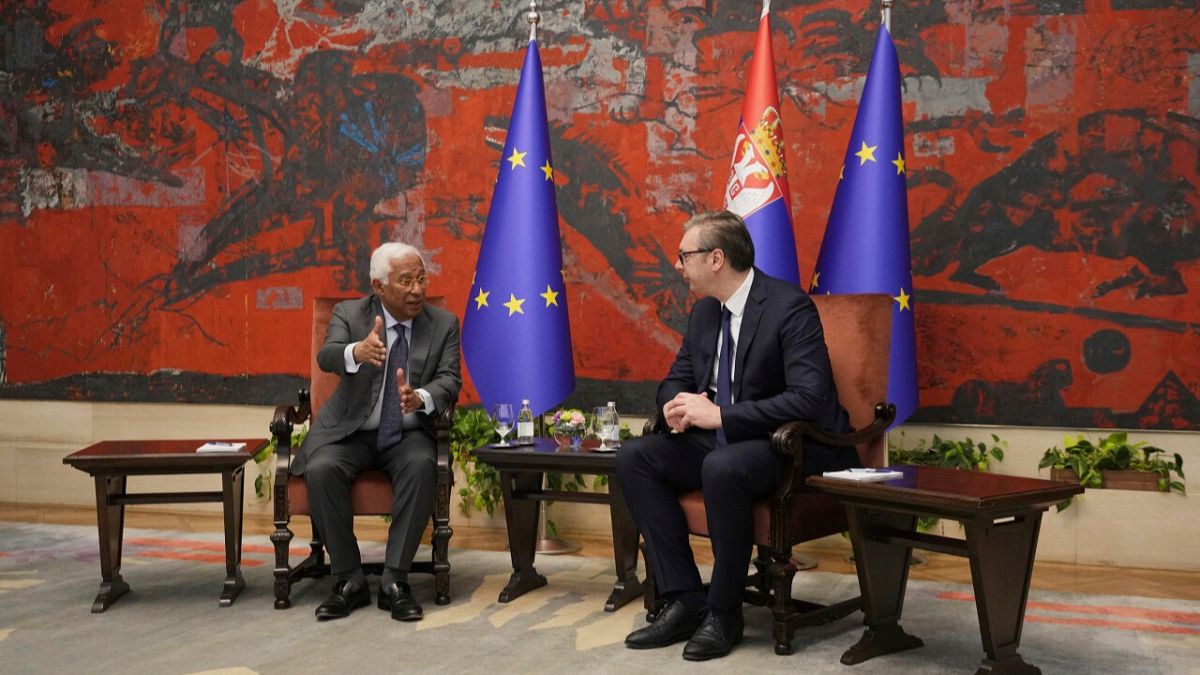Serbia is “fully committed with the European accession process,” said European Council President António Costa on a visit to Belgrade.
Costa met with Serbian President Aleksandar Vučić amid criticism of Vučić’s trip to Moscow’s Victory Day parade last week, adding that “a lot of people asked me not to come.”
But he said he decided to travel to the Serbian capital to “clarify” Vučić’s visit to Moscow, saying, “We need to have a full alignment in our common foreign and security policy.”
Vučić, Costa said, “explained to me it was a moment to celebrate an event from the past.”
“We cannot rewrite the history, and (we) fully understand that Serbia celebrates (its) liberation,” Costa said, turning to Russia’s ongoing all-out war in Ukraine, now in its fourth year.
“But we cannot celebrate the liberation 80 years ago and don’t condemn an invasion of another country today.”
“You have our word,” Vučić assured Costa, “that we will make an additional effort to get closer to the European Union faster.”
Vučić has been under significant pressure in Serbia following six months of large student-led anti-corruption protests. These erupted after a train station awning collapsed in Novi Sad on 1 November 2024, killing 16, which many in the country blamed on graft in infrastructure construction.
Vučić has also been criticised for maintaining close relations with Russia and China while formally saying that he wants Serbia to join the EU.
Serbia relies almost entirely on Russia for energy, and has refused to join Western sanctions on Russia over the full-scale invasion of Ukraine. Belgrade instead has backed a UN resolution criticising Russia’s attack.
From Belgrade, Costa will travel to Bosnia and Herzegovina, where Bosnian Serb leader Milorad Dodik’s ongoing standoff against the state-level government has revived ethnic tensions long after a 1992-1995 war, and stalled pro-EU reforms.
Recently, Albania and Montenegro emerged as leading candidates for EU membership in the Western Balkans, while Serbia, Bosnia, Kosovo and North Macedonia remain lagging behind.
Additional sources • AP
Read the full article here


